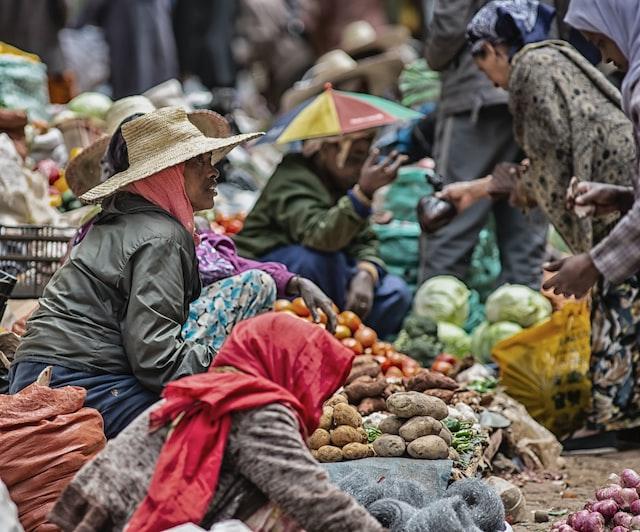Stopping food aid in Ethiopia from the United States and United Nations caused severe hunger that has killed hundreds of people in the northern Tigray region in recent weeks, and one local bishop said the situation is “beyond human imagination.”
Newsroom (09/07/2023 20:30, Gaudium Press) The recent halt in food aid from the United States and the United Nations has resulted in severe hunger and an alarming death toll in Ethiopia’s northern Tigray region. Bishop Tesfasellassie Medhin of Adigrat describes the situation as “beyond human imagination,” emphasizing that the two-year war has left many relying solely on humanitarian assistance. Displaced individuals, forced into tented camps and schools, cry out for peace as they grapple with the aftermath of the conflict that included aerial bombardments, sieges, and blockades.
The war in Tigray erupted in November 2020 when Ethiopian Prime Minister Abiy Ahmed Ali accused the ruling Tigray People’s Liberation Front of overrunning a national army base. A peace treaty in November 2022 brought an end to the fighting but left a devastating impact. Bishop Medhin estimates that the war claimed at least 1 million lives and left 5 million to 6 million people dependent on relief aid. Additionally, hundreds of thousands were forced to seek refuge in neighbouring countries.
Describing the atrocities committed during the war, the bishop recounts priests being pulled from altars, convents being violated, and churches being destroyed. Reports from human rights groups document instances of rape, sexual violence, and massacres targeting entire communities. Now, the suspension of humanitarian aid by major relief agencies, including the U.N.’s World Food Program and the U.S. Agency for International Development, has exacerbated the crisis, resulting in further deaths due to malnutrition and a lack of medical supplies.
The aid suspension follows allegations of widespread theft of lifesaving aid. U.S. aid officials discovered food aid meant for 134,000 people being sold in a local market in Tigray. An internal memo by foreign donors implicated Ethiopian government officials in the alleged theft. The suspension of aid has been described as a measure of last resort due to the scale and coordination of the food diversion.
Bishop Medhin cautions against using the suspension of aid as a means to fix the distribution system, highlighting the need for investigations and improved transparency. He urges decision-makers to consider the shared humanity of those suffering and find alternative solutions to address theft without pronouncing a death sentence on the vulnerable population.
Additionally, the bishop highlights the presence of the Eritrean army and Amhara regional troops forcefully occupying one-third of the region, obstructing access to people in need. This violates the peace treaty that called for the withdrawal of all foreign and regional forces from Tigray. The occupation also hampers the church’s pastoral work, making it challenging to provide support and aid to priests and parishioners.
The bishop concludes by expressing hope for Tigray’s recovery and resilience. Despite the immense challenges faced, he believes the region will rebuild with the strength of its people. Bishop Medhin calls for support and assistance from those who have experienced similar circumstances, emphasizing the importance of learning from past experiences.
–Raju Hasmukh with files from OSV News































